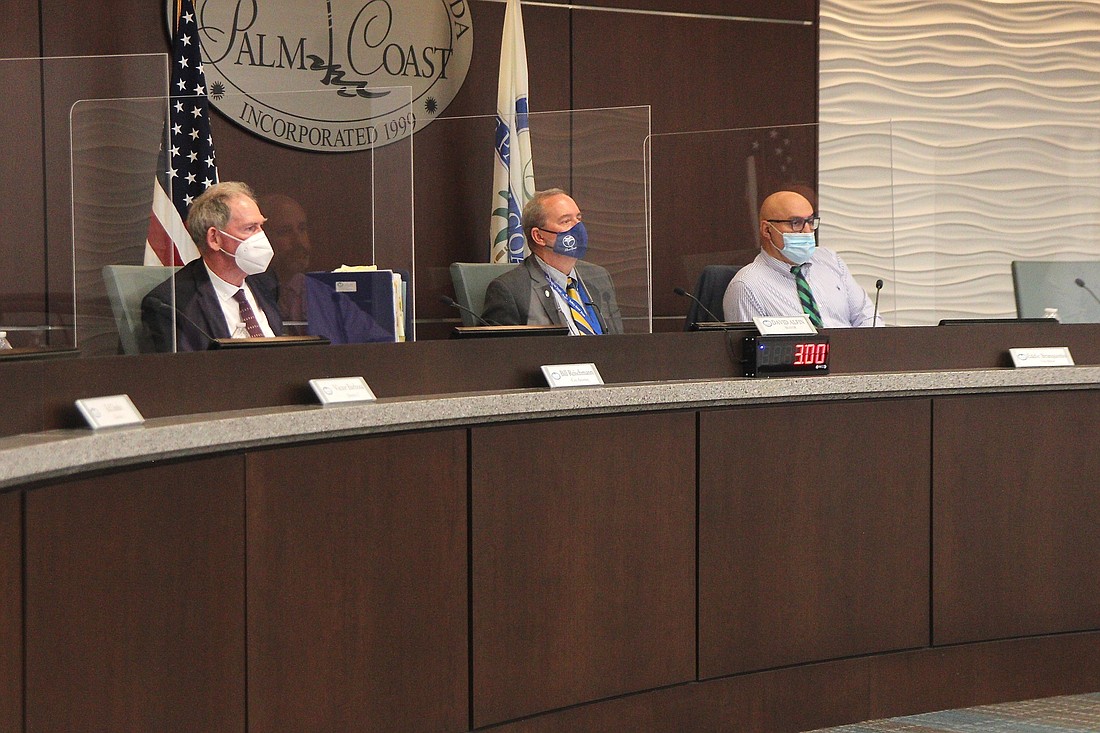- April 26, 2024
-
-
Loading

Loading

Palm Coast homeowners will see a slight decrease in their property tax rate this coming year, even as the city plans to fund all 10 new deputy positions requested by the Flagler County Sheriff's Office: The Palm Coast City Council on Sept. 9 voted 3-2 to set the property tax rate at $4.61 per $1,000 of taxable value, instead of the current rate of $4.6989 per $1,000 in taxable value.
Because property values have risen, the slightly lower rate will actually bring in more tax money for the city in the coming year that the current rate did this year, and will amount to a tax increase. Still, it's the first time the council has lowered the millage rate in four years.
A homeowner with a $200,000 house with $150,000 of taxable value will pay $691.50 under the 4.61 millage rate the council approved, and would have paid $704.84 if the council held the rate steady at the higher rate of 4.6989 — making the lowered rate amount to a savings of $13.35.
The city will spend about $530,000 from its reserves, which are currently 27.4% of the general fund — higher than the 10%-20% suggested in city policy — to be able to lower the tax rate while still funding the new law enforcement positions, which requires $1.7 million more than the city would otherwise pay.
Mayor David Alfin had started the meeting by warning his fellow councilman that he would interrupt council members if they violated the council's rules of decorum — a reaction to a contentious dispute between councilmen Ed Danko and Eddie Branqiunho at a previous workshop.
Explaining his position on the rate and the need to fund the 10 new law enforcement positions, Alfin said safety was his top priority.
"In the post-9/11 world, I will not gamble or risk our citizens' public safety," he said. "Fire and police remain my top priorities, because they protect our quality of life. All other expenses that define our quality of life must support public safety. And then we can work to reduce taxes and government expense."
Danko and Branquinho were the two dissenting votes at the Sept. 9 meeting, but they voted no for opposite reasons.
Danko, who ran on a promise not to raise taxes — he'd said he'd rather drink antifreeze than do so — thought the city should reduce the property tax rate all the way to the rollback rate, which would be the rate that would bring in the same amount of tax money in the coming year as the city received this year, and therefore wouldn't be a tax increase. That would require that the city cut about $800,000 in operating expenses.
"I think we’ve made virtually no effort to make any cuts, and if we don’t want to dip into that reserve fund, I think cuts are the only way," Danko said.
He motioned that the city, to save money, rescind an earlier decision to build a regional racquet center. But city staff members said nixing the racquet center project would only save up to $289,000 in general fund money, because the rest of the project's funding came from the sources — and some of that $289,000 had already been spent.
Alfin suggested that the council revisit the racquet center issue in the future. Danko agreed.
Branquinho opposed the use of reserve money to fund operating expenses, warning that the city might need it to pay for expenses associated with a disaster like a hurricane. He thought the city should keep the current rate of 4.6989.
Using the reserve fund money, Branquinho said, was "the easy way to govern — it's the one that doesn't require much intelligence on our side."
He said he'd spoken to a friend on the Elizabeth City, New Jersey city council, about that city's costs associated with Hurricane Ida. That's what reserve money is for, he said.
But Alfin had noted that the city's reserve are over the recommended amount, and council members Nick Klufas and Victor Barbosa were willing to vote for the 4.61 rate and the use of some reserve money, though Klufas did so with trepidation about using reserves and a warning that the council shouldn't continue doing so in future years.
The city's final millage rate and budget hearing is scheduled for 5:30 p.m. Wednesday, Sept. 22.